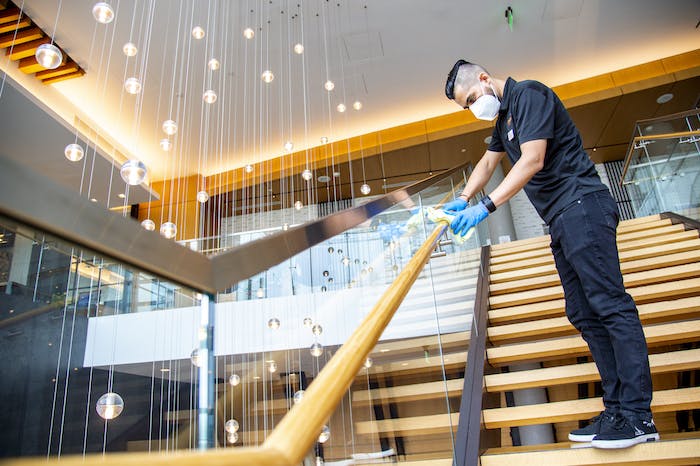With borders around the world shut and countless millions subject to some form of lockdown, the travel and hospitality industries have been among the hardest hit by the Covid-19 pandemic.
By some estimates, airlines and hotels face hundreds of billions of dollars in losses due to the pandemic, a staggering amount that will likely reshape the industries for years to come.
The big question on industry executives’ minds: when borders reopen and freedom of movement is restored, just how long will it take for a meaningful recovery to begin?
The answer to that question will depend a lot on just how comfortable individuals feel boarding a plane or checking into a hotel. In an effort to convince consumers that doing so is safe, a growing number of travel and hospitality brands are partnering with household CPG names.
Last week, United Airlines announced a tie-up with Clorox dubbed ‘United CleanPlus’. As detailed in a press release, “Clorox is working closely with United to enhance the airline’s cleaning program, redefine disinfection procedures and equip customers with amenities at select locations that help support a healthier and safer environment throughout their travel journey.”
United CleanPlus will roll out first at select United hub locations, with expansion to other locations to follow.
The United partnership with Clorox comes on the heels of a similar partnership announced last month between Hilton and Clorox competitor Lysol, which is owned by CPG giant Reckitt Benckiser (RB). Under ‘Hilton CleanStay with Lysol protection’, the hotel giant will prominently use Lysol products in North America in an effort to reassure guests that their rooms are safe and clean.
According to the company, “RB will bring key talent and Lysol experts in hygiene and disinfection to the multi-year partnership, leveraging over 130 years of science-based research and thought leadership to support awareness, training and education, and product delivery and systems. RB and Hilton are also exploring opportunities to expand the program into a global partnership.”

Is brand power a strong enough disinfectant?
Health experts say that coronavirus can be spread through contaminated surfaces, which has led to a huge boom in demand for makers of disinfectants and cleaning supplies. Clorox and Lysol are two of the biggest, and their brands are synonymous with the category.
That makes them ideal partners for travel and hospitality companies eager to show consumers that they’re taking customer health seriously. But is the brand power Clorox and Lysol bring to the table as strong as their disinfectants?
Notably, the partnerships announced by United and Hilton don’t just involve Clorox and Lysol and the use of their products. The companies have also engaged health experts to be a part of their new programs. In the case of United CleanPlus, the Cleveland Clinic is helping the airline rethink the traveler journey to improve safety. For instance, United will be reducing touchpoints and upping its use of contactless technologies, such as touchless kiosks. It is also modifying its boarding procedures.
Hilton is working with the Mayo Clinic to establish revised disinfection and cleanliness standards with Covid-19 in mind. According to the company, “With the aid of Mayo Clinic medical and technical experts, Hilton is rewriting its cleaning protocols to translate the best practices in hospital hygiene standards to hotel guest rooms.”
Broader initiatives like this make sense. While the use of the Clorox and Lysol brands is likely to highlight to customers that companies are trying to increase cleanliness, delivering on this promise reasonably requires changes that go beyond the increased use of disinfectants.
Up next: partnerships beyond travel and hospitality?
While travel and hospitality brands might be the most eager partnership-seekers, don’t be surprised if others take a page from their playbook. Some retailers, for instance, are likely to face similar consumer concerns about cleanliness as they reopen their physical stores. In fact, according to a Deloitte survey, just 40% of American consumers feel safe going to retail stores right now.
As such, it seems that retailers might also benefit from high-profile safety initiatives bolstered by partnerships with CPG brands known for their cleaning products.







